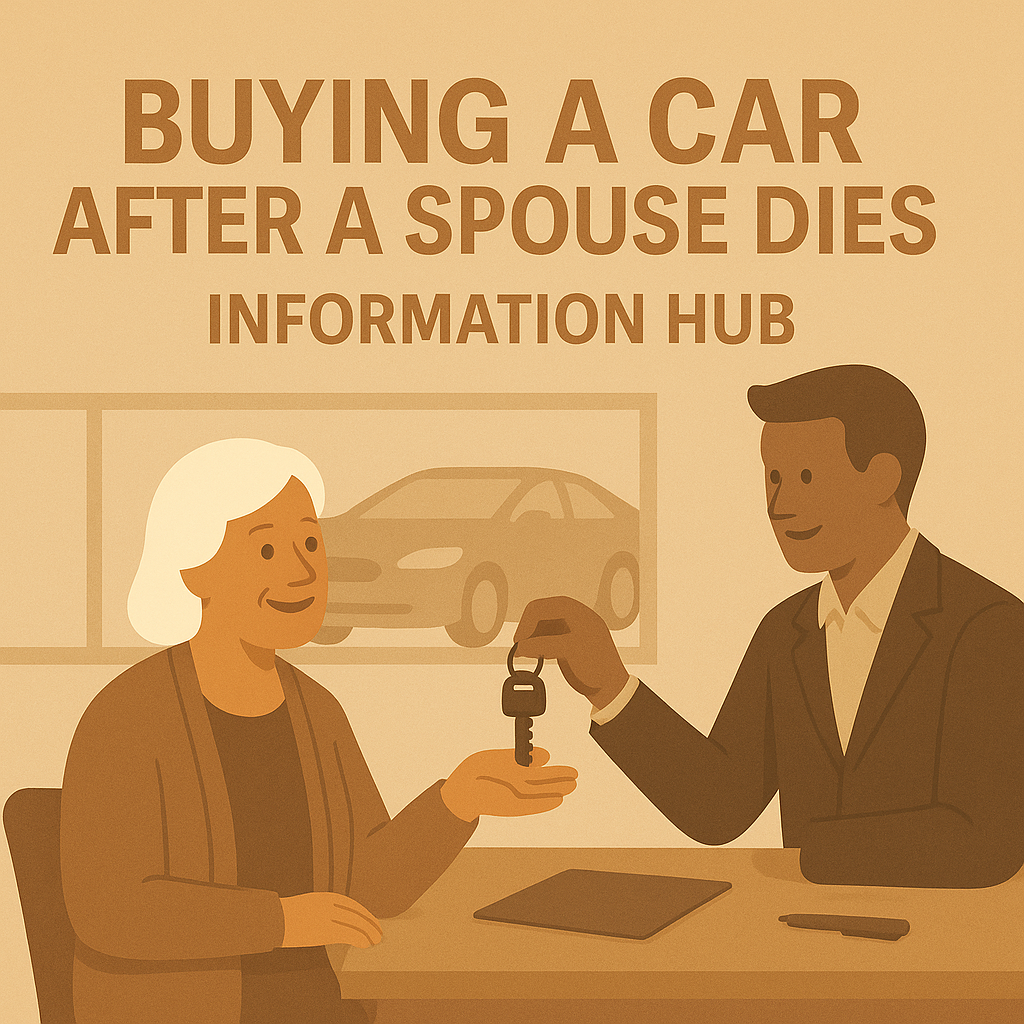Mapping Your Professional & Academic Journey
The Buying A Car After A Spouse Dies Information Hub
Buying a car after losing your spouse is about more than transportation. It’s a big emotional and financial step. This hub walks you through what to consider, what paperwork to gather, and how to navigate the process with clarity and confidence.

Key Things To Know
- This decision blends practical needs with emotional weight. Whether your spouse handled the cars, the title was in their name, or you’re navigating this solo for the first time, this hub helps you prepare:
- You may need to transfer or retitle your spouse’s car before selling or trading it
- If you shared a car, decide if you want to keep it or start fresh
- Gather the title, registration, insurance, and death certificate if your spouse’s name is on the vehicle
- Check for any liens, loans, or co-signed agreements still in place
- Review your budget and car needs—downsizing, fuel efficiency, or features might matter more now
- Update your insurance policy to reflect your new situation and driver profile
- Be prepared for dealerships or lenders to ask about your marital status and income
- Consider bringing someone with you for emotional or logistical support during the process
- If the car was in a trust or part of the estate, consult an attorney before making changes
- Make sure you’re emotionally ready—grief can cloud big decisions, and that’s okay
How to Get Started
You don’t need to rush this. When the time feels right, here’s how to begin:
- Review your transportation needs: Do you still drive often? Need something smaller or easier to manage? Think about how your routine has changed.
- Look at your finances: Review your budget and credit. This helps you understand what kind of purchase makes sense and whether to lease, finance, or buy outright.
- Gather your documents: If you’re handling a shared or inherited vehicle, collect the title, death certificate, and any loan payoff statements.
- Update your insurance: Make sure your current policy reflects your new situation. Removing your spouse or transferring the policy may impact your rates.
- Visit a dealership or shop online: When you’re ready, start looking. Don’t hesitate to bring someone with you or ask for help. This process can be emotional.
- Take your time: If you feel overwhelmed, step back. There’s no deadline to buy a car. You deserve to make the decision when you feel steady enough to do so.
Find A Service Provider Near You
Need professional assistance? Use our directories to find trusted service providers near you who specialize in estate planning, end-of-life organization, and related services.
Articles
Frequently Asked Questions
This process can feel overwhelming, especially if your spouse handled the cars or finances. These common questions can help you take the next step.
Disclaimer: The information provided on this website and by Buried in Work is for general informational purposes only and should not be considered legal advice. Please consult with a qualified attorney or subject matter expert for advice specific to your situation.




